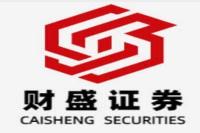Mexico's Auto Parts Industry: Navigating a Rocky Road to Regional Integration
Meta Description: Deep dive into the challenges and opportunities facing Mexico's automotive parts industry, exploring NAFTA's legacy, the impact of trade wars, and the future of regional integration. Discover expert insights and firsthand accounts on navigating the complexities of this vital sector.
Imagine this: you're driving your favorite car, utterly unaware of the intricate network that brought it to life. From the tiniest sensor to the robust engine block, countless parts, meticulously crafted and assembled, converge to create the machine under your control. Now, picture that process happening in Mexico, a nation that's become a global powerhouse in automotive manufacturing. But the road hasn't been smooth. Trade wars, shifting geopolitical landscapes, and the ever-present threat of supply chain disruptions have thrown significant wrenches into the gears of this vital industry. This isn't just about nuts and bolts; it's about jobs, economic growth, and the very fabric of regional integration in North America. This in-depth analysis unravels the complexities of Mexico's auto parts sector, offering an insider's perspective on the challenges and triumphs faced by this dynamic industry. We'll examine the lingering effects of NAFTA, the impact of protectionist measures, and the strategies employed by companies to ensure resilience and competitiveness in a volatile global market. Prepare for a journey into the heart of Mexico's automotive ecosystem – a sector brimming with innovation, yet constantly battling headwinds in its quest for sustainable growth and regional harmony. We'll delve into the nitty-gritty details, exploring everything from the intricacies of supply chains and the impact of fluctuating currency values to the crucial role of skilled labor and technological advancements. Get ready to buckle up – this is a ride you won't want to miss! This isn't just an article; it's a strategic roadmap for understanding a critical piece of the global automotive puzzle.
Mexico Automotive Parts Industry: Challenges and Opportunities
The Mexican automotive parts industry (a sector often referred to as the "backbone" of the broader automotive sector) faces a complex web of challenges and opportunities. The industry's success is intrinsically linked to the stability and effectiveness of regional integration efforts, especially considering its deep ties with the North American market. The industry's history is deeply intertwined with the North American Free Trade Agreement (NAFTA), now replaced by the United States-Mexico-Canada Agreement (USMCA). While USMCA aimed to modernize and improve upon NAFTA, the transition and its subsequent implications have presented considerable hurdles.
One of the most significant ongoing issues is the ever-present threat of protectionist measures and trade disputes. Any disruption to the carefully calibrated supply chains that support Mexico's auto parts industry can have cascading effects, impacting production, employment, and overall economic stability. The INA's (Industria Nacional de Autopartes) statement highlighting the detrimental effects of tariffs perfectly illustrates this vulnerability. As a key player in the global automotive supply chain, Mexico is highly sensitive to shifts in trade policy affecting its exports and imports.
Furthermore, currency fluctuations between the Mexican Peso and the US dollar can significantly impact profitability and competitiveness. A weaker peso might seem beneficial at first glance, boosting export competitiveness, but it can also increase the cost of imported raw materials and components, thus eroding those gains.
The Role of Regional Integration
The success of Mexico's auto parts industry is inextricably linked to the health of regional integration efforts within North America. Seamless cross-border trade, efficient logistics, and harmonized regulations are crucial for maintaining the industry's competitiveness. However, political and economic uncertainties, coupled with the potential for protectionist policies, pose significant risks to this delicate balance. Maintaining a strong, mutually beneficial relationship with the US and Canada is paramount for Mexico's auto parts sector to thrive. This requires collaborative efforts to address shared challenges, such as labor standards, environmental regulations, and supply chain resilience.
Technological Advancements and Skilled Labor
The automotive industry is undergoing a rapid transformation driven by technological advancements, including the rise of electric vehicles (EVs), autonomous driving systems, and connected car technologies. Mexico's auto parts industry needs to adapt quickly to remain relevant. This requires substantial investment in research and development (R&D), upskilling and reskilling the workforce, and attracting foreign direct investment (FDI) focused on these emerging technologies. Ensuring a skilled workforce is crucial. This doesn't just mean having technicians who can handle traditional manufacturing processes; it also demands expertise in software engineering, data analytics, and artificial intelligence (AI) – skills increasingly vital in modern automotive manufacturing.
Supply Chain Resilience
Building a resilient supply chain is paramount in the face of global uncertainties. This involves diversification of sourcing, strategic partnerships, and robust risk management strategies. The COVID-19 pandemic exposed the vulnerabilities of overly concentrated supply chains, highlighting the need for greater diversification and flexibility within the Mexican auto parts industry. Companies are exploring near-shoring and regionalization strategies to reduce reliance on distant suppliers and mitigate potential disruptions.
Environmental Concerns and Sustainability
The automotive industry is under increasing pressure to reduce its environmental footprint. This means adopting sustainable manufacturing practices, investing in cleaner technologies, and complying with stricter environmental regulations. Mexico's auto parts industry needs to embrace sustainability initiatives to maintain its competitiveness and attract environmentally conscious customers and investors. This includes adopting circular economy principles, reducing waste, and minimizing the environmental impact of production processes.
Government Policies and Support
Government policies play a vital role in shaping the industry's trajectory. Supportive policies, including investment incentives, infrastructure development, and streamlined regulations, are essential for attracting investment, fostering innovation, and ensuring the industry's long-term growth. On the flip side, inconsistent or protectionist policies can hinder the industry's progress and jeopardize its competitiveness.
Navigating the Future: Strategies for Success
Mexico's auto parts industry needs to adopt a proactive and multi-faceted approach to overcome the challenges and seize the opportunities that lie ahead. This includes:
- Investing in R&D and innovation: Developing new technologies and processes is crucial for remaining competitive in a rapidly evolving market.
- Upskilling and reskilling the workforce: Ensuring that the workforce possesses the necessary skills to meet the demands of the industry is paramount.
- Strengthening regional integration: Collaborating with partners in the US and Canada is vital for ensuring the smooth flow of goods and services.
- Diversifying supply chains: Reducing reliance on single suppliers and regions is essential for mitigating risks.
- Embracing sustainability: Adopting environmentally friendly practices is crucial for attracting customers and investors.
- Advocating for supportive government policies: Working with policymakers to create a favorable business environment is essential.
Frequently Asked Questions (FAQs)
Q1: What is the biggest challenge facing Mexico's auto parts industry?
A1: The biggest challenge is likely the volatility of the global trade environment, including the risk of protectionist measures and trade disputes that can disrupt supply chains and impact production.
Q2: How does NAFTA/USMCA impact the industry?
A2: NAFTA, and now USMCA, significantly shaped the industry's development by facilitating free trade and investment. The transition to USMCA brought its own set of challenges and opportunities, requiring adaptation and adjustments for companies.
Q3: What role does technology play in the future of the industry?
A3: Technology is transforming the industry rapidly. The shift towards EVs, autonomous vehicles, and connected cars requires significant investment in R&D and upskilling of the workforce to incorporate new technologies into manufacturing processes.
Q4: What are the environmental concerns associated with the industry?
A4: The industry faces pressure to reduce its environmental impact. This requires adopting sustainable manufacturing practices, reducing waste, and investing in cleaner technologies.
Q5: How can Mexico's government support the auto parts industry?
A5: The government can provide crucial support through investment incentives, infrastructure development, streamlined regulations, and policies promoting innovation and sustainability.
Q6: What are the long-term prospects for Mexico's auto parts industry?
A6: The long-term prospects are promising, but dependent on successfully navigating the challenges mentioned above. A focus on innovation, workforce development, and sustainable practices will determine the industry's future success.
Conclusion
Mexico's auto parts industry stands at a pivotal moment. While significant challenges remain, the opportunities for growth and innovation are immense. By embracing a strategic, forward-looking approach that prioritizes collaboration, technology, sustainability, and regional integration, Mexico can solidify its position as a key player in the global automotive landscape. The success of this vital industry will depend on the collective efforts of industry players, policymakers, and educational institutions working together to navigate the complex road ahead. The journey might be bumpy, but with the right approach, the destination promises a thriving and resilient automotive ecosystem for Mexico.



